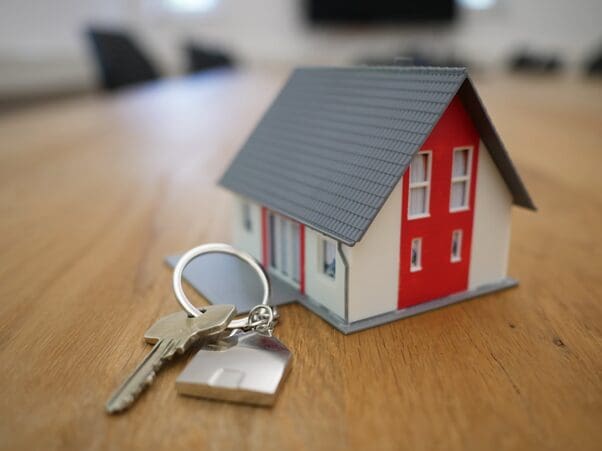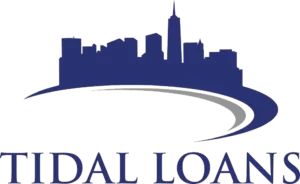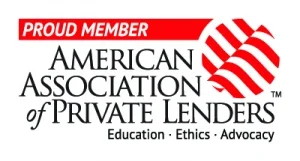Why Secure Digital Payments Matter For Your Mortgage
Secure digital payments are commonplace in all areas of business and in life today. You order food online, you order clothes online, and when you go for a night out you even Venmo payments to your friends. Mortgage payments are no exception to the digital payment wave.
It really comes as no surprise that 90% of adults in the U.S., according to statistics, are now using some form of digital payment. The risks associated with online financial transactions are more important than ever, and they require attention.

Ensuring secure payment methods for mortgages not only protects sensitive financial data but also prevents potential fraud. Even more importantly, it provides peace of mind and less stress in your life – if you set up automatic payments you no longer have to think about the act of paying your mortgage.
Types Of Digital Payments For Secure Mortgage Transactions
Since we’ve established that digital payments are taking over our lives, and you’re more than likely to end up paying for everything online, mortgages included – now is the right time to have an overview of the kinds of digital payments out there.
Below, we’ll explore several digital payment types, highlighting how each can serve as a reliable method for managing your mortgage payments.
eCheck Payment
Our first example clearly demonstrates the transition from traditional payment methods to online payment methods. An eCheck is basically a digital version of a traditional paper check. The only difference is that the funds are processed electronically.
Processing an eCheck goes through something called the Automated Clearing House (ACH) network. This network connects banks across the U.S. and enables secure fund transfers between accounts.
To actually make the eCheck payment itself, the payer will need to input their bank account and routing numbers, much like with a physical check. The transaction is verified, and the funds are transferred directly to the recipient’s bank account – and the process is completed. Really, there is very little difference between how an eCheck and a traditional check is processed.
Since eChecks are processed electronically, the risk of losing or misplacing the physical check is eliminated, making them particularly useful for recurring mortgage payments. In addition, eChecks often carry lower transaction fees compared to credit cards, which can be beneficial for large transactions like mortgage payments.
Credit and Debit Card Payments
Credit and debit cards really can’t be news for anyone since they have been staples in digital payment in the world. Credit and Debit cards are convenient and quick, as transactions are usually processed instantly. This makes them ideal for one-time payments such as down payments or closing costs.
Credit cards can also provide rewards or cashback on payments, though this may not always apply to mortgage transactions, to be fair. There is a drawback, however, and it is that credit card companies often charge higher processing fees than other digital payment methods. This can add up over time if you’re making regular mortgage payments.
Also, credit cards may not always be accepted for mortgage payments, but this depends on your institution of choice. When they are accepted, using a debit card instead can help you avoid interest charges, as debit card transactions withdraw directly from your checking account without borrowing.
Mobile Wallets
Mobile wallets are a relatively new thing. Services like Apple Pay, Google Pay, and Samsung Pay are becoming increasingly popular for digital transactions and this very much includes mortgage payments.
Here’s how they work – mobile wallets store your payment information securely on your device (this is most likely your phone). Smartphones usually use encryption and biometric verification to even unlock them, which means you are pretty much secure. Usually, mobile wallets are highly convenient for on-the-go payments, and it support instant fund transfers.
However, the availability of mobile wallets for mortgage payments depends on the lender, and they are often more suited for smaller, one-off payments than large, recurring ones…
Bank Transfers
Bank transfers worked differently in the past, but they are now basically electronic funds transfers (EFTs). What happens is that you move money directly from your bank account to another bank account. These transfers are secure and widely accepted for mortgage payments (unlike the methods we listed above). There is a downside, and it’s that they often take a few business days to process (pretty much guaranteed for large sums). There’s also a small transaction fee depending on the bank, but this is a minor convenience.
This method is favored for its simplicity and is frequently used for high-value mortgage payments, especially when linked to automatic payments.
Here’s the main selling point of bank transfers – the ability to set up automatic recurring payments, ensuring that your mortgage is paid on time each month without the need for manual intervention or any hassle from your end.
Peer-to-Peer (P2P) Payments
We’ve mentioned Venmo earlier, but now it’s time to go deeper into other Peer-to-peer payment platforms. The main representatives are Venmo, PayPal, and Zelle. These are typically used for personal transactions but can sometimes be applied to business transactions, including mortgage payments.
P2P platforms allow users to send money quickly by linking their bank accounts or cards to the payment service. To be completely honest, P2P systems are generally not favored for mortgage payments due to limitations on transaction sizes and potential processing fees.
Despite these drawbacks mainly related to bigger payments like mortgages, they are highly convenient for paying smaller fees. So while you might not be able to use them for the mortgage, worry not there is no shortage of other, smaller costs during the home-buying process. Inspection fees, home repairs, and administrative fees can all be paid using a P2P method. The main reason why people favor them is their simplicity and the rapid transfer of funds, often within minutes.
ACH Debit Payments
An ACH (Automated Clearing House) debit is definitely good for mortgages since it specializes in recurring transactions. ACH debits pull funds directly from your checking account and transfer them to the recipient’s bank through a secure network, electronically, of course.
These payments are processed in batches, usually taking one to three business days, making them a reliable option for large, scheduled payments like mortgage dues.
One of the biggest advantages of ACH payments is their cost-effectiveness—typically much cheaper than credit card transactions, with fees as low as $0.40 per transaction.
ACH payments are known for their robust security measures, using encryption and authentication protocols to safeguard sensitive financial information.
Cryptocurrency Payments
Cryptocurrency is a very recent trend in finance and more and more industries are accepting digital currencies. Bitcoin and Ethereum are seeing more usage for transactions in almost all avenues of business, including real estate.
Cryptocurrency payments are processed using something called blockchain technology. This technology ensures secure, transparent, and tamper-proof transactions. Cryptocurrencies operate on decentralized networks and they aren’t regulated by central banks. This is a huge selling point for users who want an alternative to traditional financial institutions.
Transactions are completed from anywhere in the world without the need for intermediary banks. Cryptocurrency payments are processed almost instantly, removing the delays associated with traditional banking systems.
A major downside is that they are not widely accepted, at least not yet. We may need to wait and see if crypto will become a widespread option for mortgage payments.
Wrapping Up
We’ve given you a quick overview of the digital payment options you could use for your mortgage payments. We couldn’t go into too much detail about all of them for reasons of brevity, and each of them will need more thorough research once you get to choose the right one for you.
You must have noticed we’ve also mentioned some payment methods that might not be accepted for mortgages, but when faced with the decision whether to give an overview of more payment options or go just for the ones you could surely use for a mortgage we choose the first option. The main reason why we did that is to underline that these things change and are likely to change in the future.
All in all, we advise that you research your chosen payment method well and keep an eye on new ones as they get accepted for mortgages.


